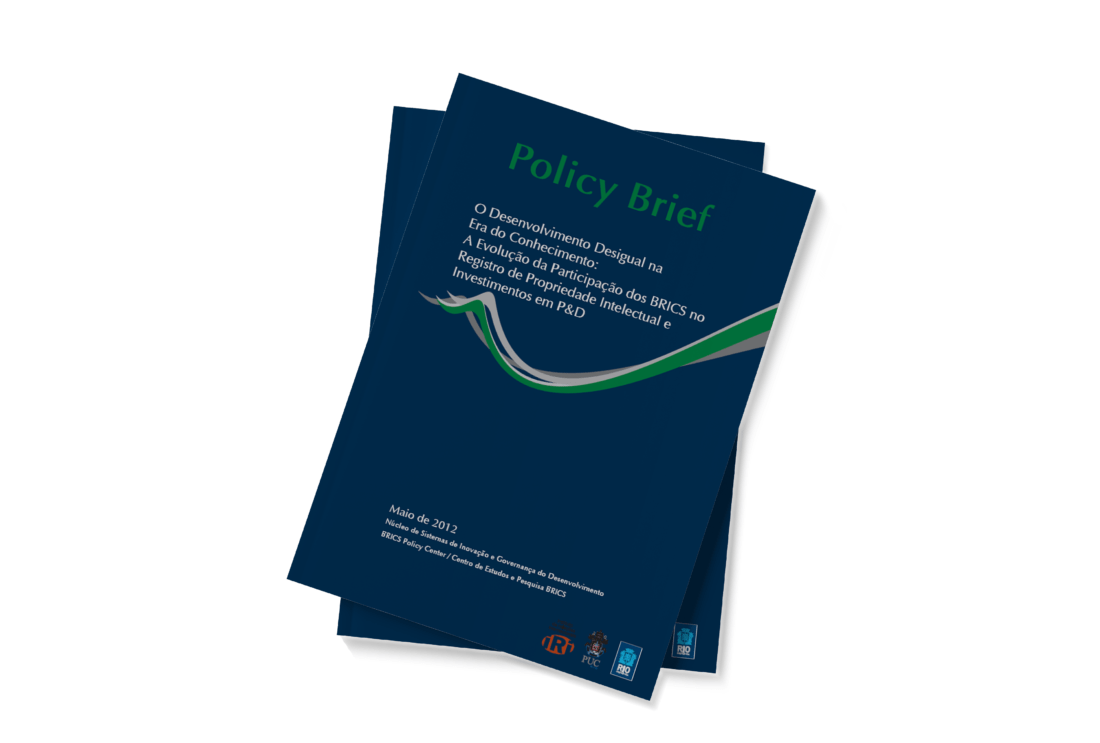
Uneven Development in the Age of Knowledge: The Evolution of BRICS Participation in the Register of Intellectual Property and Investments in R & D
This Policy Brief analyzes the evolution of two indicators of BRICS countries’ scientific production capacity and innovation: R & D investment and the intellectual property registration of industrial innovation products and processes. We have shown that BRICS R & D investments have been growing throughout the 2000s. While in China the business sector has been the main investor in other BRICS, governments hold more significant shares of R & D contributions. We then analyzed the evolution of industrial patent registration between the BRICS and the traditional powers, and the same evolution between the BRICS countries between the years 2000 and 2009. We argue that intellectual property is, historically, a mechanism for protecting productive systems and innovation policies of developed countries, reproducing global inequality. We note that BRICS participation in patent registrations is still timid, but has been growing, especially in China. This has been emphasizing in the last decades by the increase of the production of knowledge and innovation, in order to gradually incorporate them in its economic growth. We conclude, therefore, that there are different times of uneven development: while the BRICS economic growth leap is relatively accelerated, scientific production and investment in innovation, reflected in the patent register, accompany this growth with lag time, condition to give greater sustainability to one’s own economic growth.

